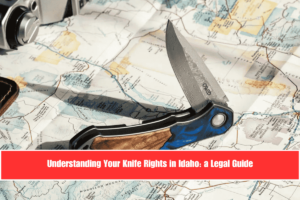Most people who drive have been pulled over by the police at one point or another. But that doesn’t mean it’s an easy experience.
One major reason traffic stops can be stressful is that many drivers don’t know when the police are allowed to search their cars. This post introduces a few key legal concepts to help clear up the confusion. If you know your rights—and how to assert them—you may be able to reduce some of the stress and uncertainty.
Police Don’t Always Need a Warrant to Search Your Car
The Fourth Amendment to the U.S. Constitution protects people from “unreasonable searches and seizures.” Generally, this means police must obtain a search warrant by showing a judge they have probable cause—that is, a reasonable belief a crime has been or will be committed, and that evidence is likely to be found in the specified location.
However, different rules apply to vehicles. Under the automobile exception, police do not need a warrant to search your car if they have probable cause to believe it contains evidence of a crime. This exception exists because vehicles are mobile and evidence could be lost if officers had to wait to obtain a warrant.
Traffic Stops Must Be Reasonably Brief
A typical traffic stop begins with the officer requesting your license and registration and explaining the reason for the stop. That’s the basic scope of a traffic stop: to determine whether a citation should be issued and to check your license and insurance.
If the stop lasts longer than necessary for this purpose, it may violate your constitutional rights. For instance, if you’re pulled over for speeding, the officer generally cannot extend the stop to search your vehicle unless there’s suspicion of another crime, such as intoxication.
See People v. Paddy, 87 N.E.3d 1054 (Ill. App. Ct. 2017).
If the officer doesn’t explain the reason for the stop, you have the right to ask. You can also ask if you are free to leave. If the officer says “no,” you are likely being detained for a citation or arrest.
Use Your Right to Remain Silent and Refuse Search Requests
The Fifth Amendment protects your right against self-incrimination. You have the right to remain silent during any interaction with law enforcement—and we strongly encourage you to use it. You also have the right to have a lawyer present during questioning. Clearly stating, “I will not talk. I want my lawyer,” is the best way to invoke these rights.
See U.S. v. Swanson, 635 F.3d 995 (7th Cir. 2011).
Even if you are not under arrest, it’s important to clearly state that you do not consent to any search. The Fourth Amendment gives you the right to refuse consent, but police are not required to inform you of this right.
See:
- Schneckloth v. Bustamonte, 412 U.S. 218 (1973)
- Ohio v. Robinette, 519 U.S. 33 (1996)
- United States v. Drayton, 536 U.S. 194 (2002)
Refusing a search does not imply guilt. Still, officers may try to pressure or mislead you into giving consent—don’t fall for it.
When Police Can Search Without Consent
Even without your permission, police may search your car if:
- They have probable cause to believe it contains evidence of a crime
(United States v. Ross, 456 U.S. 798, 1982). - You or a passenger is arrested, and evidence related to the arrest may be inside the vehicle, or the arrestee could have accessed the car to retrieve a weapon or evidence
(Arizona v. Gant, 556 U.S. 332, 2009).
However, any search must be limited to areas where the suspected evidence might reasonably be located. For example, if you’re pulled over for a minor issue—like a dim headlight—there’s no justification for searching your trunk unless something more serious is suspected.
See Arizona v. Gant, 556 U.S. 343–344 (2009).
If police see illegal items in plain view, they can lawfully conduct a full search, regardless of the initial reason for the stop.
See Texas v. Brown, 460 U.S. 730 (1983).
Conclusion: Know and Assert Your Rights
For your own safety, never physically resist the police—even if you believe they are conducting an illegal search. If you do not consent and the search turns out to be illegal, any evidence found cannot be used against you in court.
Understanding and asserting your rights can reduce the fear and confusion that often comes with traffic stops. While no one wants to see flashing lights in their rearview mirror, being informed can make the experience less stressful—and help protect your rights.


















Leave a Reply